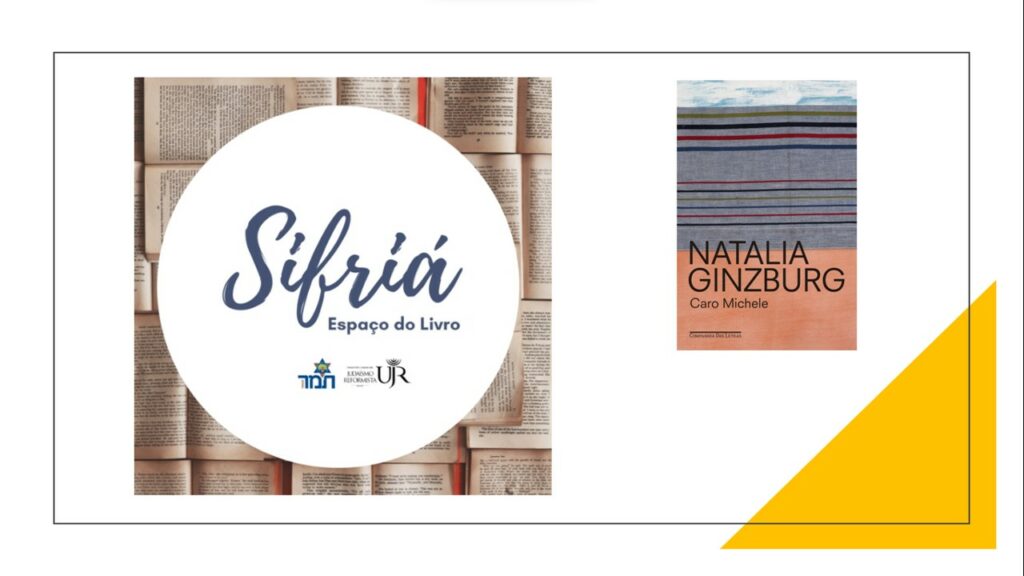Written by Natalia Ginzburg, Caro Michele (1973) deals with the impact of political issues on the characters’ private lives. Conceived as an exchange of letters between Michele, her friends and family, little by little, from the contact with different perspectives on some of the same events, we started to form an idea of the social context in which these relationships are inserted.
Although the novel does not deal directly with Jewish themes, some of the scenes evoked both by Michele’s few words and by the characters’ attempt to understand what is happening to them, seem to reflect, albeit very subtly, some of those same elements that inform the experience. Judaism in 20th century Europe: persecution, flight, exile, fickleness and self-reinvention.
Born in Palermo on July 14, 1916, Natalia Ginzburg (née Levi) is the daughter of a Jewish father of Sephardic origin and a Catholic mother. She is the author of the novel Family Lexicon (1963), in which her childhood and youth memories help us form an idea of the political tensions that defined Jewish life in Italy during the years that marked the rise of fascism and the outbreak of the Second World War. In 1944, the writer’s husband, Leone Ginzburg, a native of Odessa, was arrested, tortured and killed by the fascist regime. Natalia Ginzburg is the mother of the historian Carlo Ginzburg, author of The Cheese and the Worms (1976).
Juliana de Albuquerque – PhD in German Philosophy and Literature from University College Cork and Master in Philosophy from Tel Aviv University.


